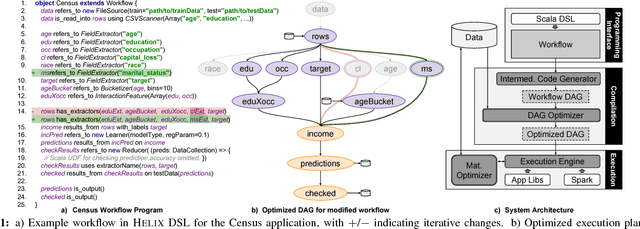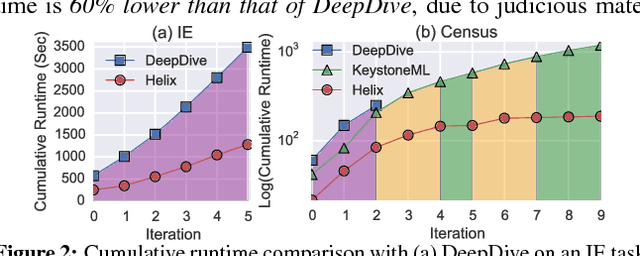Helix: Accelerating Human-in-the-loop Machine Learning
Paper and Code
Aug 03, 2018


Data application developers and data scientists spend an inordinate amount of time iterating on machine learning (ML) workflows -- by modifying the data pre-processing, model training, and post-processing steps -- via trial-and-error to achieve the desired model performance. Existing work on accelerating machine learning focuses on speeding up one-shot execution of workflows, failing to address the incremental and dynamic nature of typical ML development. We propose Helix, a declarative machine learning system that accelerates iterative development by optimizing workflow execution end-to-end and across iterations. Helix minimizes the runtime per iteration via program analysis and intelligent reuse of previous results, which are selectively materialized -- trading off the cost of materialization for potential future benefits -- to speed up future iterations. Additionally, Helix offers a graphical interface to visualize workflow DAGs and compare versions to facilitate iterative development. Through two ML applications, in classification and in structured prediction, attendees will experience the succinctness of Helix programming interface and the speed and ease of iterative development using Helix. In our evaluations, Helix achieved up to an order of magnitude reduction in cumulative run time compared to state-of-the-art machine learning tools.
 Add to Chrome
Add to Chrome Add to Firefox
Add to Firefox Add to Edge
Add to Edge